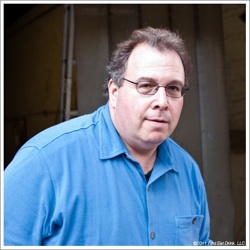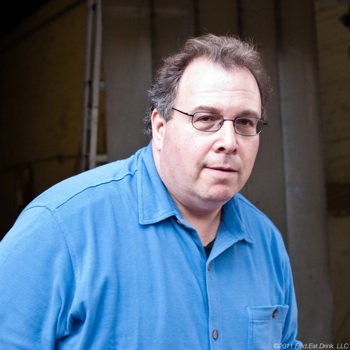Louis / Dressner Selections, Joe Dressner, Denyse Louis, Kevin McKenna, Wine Importer, Real Wine, Natural Wine, Bio-dynamic Wine, Organic Wine, Burgundy, Mâconnais, Beaujolais, Loire, Bugey, Jura, Languedoc-Roussillon, Southwest and Champagne regions of France; in Piedmont, Friuli, Veneto, Tuscany, Sicily and Puglia regions of Italy; and in the Douro of Portugal, New York, Captain Tumor Man, Maconnais, Berkeley, Where to eat, What to Drink, How to buy wine, How to pick wine, What wine to try, Wine Importers worth drinking, checking out


WINE IMPORTER
Who
A wine importer focused on “Real Wine” from France, Italy, Spain, and Portugal.
Why
They represent smaller scale growers/producers making honestly crafted wine.
Louis/Dressner Selections has built a solid reputation for importing wines that are unique, traditional, original, and honor a sense of place. They have a portfolio of over 60 producers in France, Italy, Spain, Portugal, and most recently Chile. The partnership of Denyse Louis, Joe Dressner, and Kevin McKenna search out growers who predominantly make old world style wines.
We sat down with Joe and Kevin to chat about wine, food, books and unexpectedly, movies.
Q & A WITH LOUIS / DRESSNER SELECTIONS

JD: Joe Dressner
KM: Kevin McKenna
Q. Your portfolio is focused on natural wines which you define as Real Wines? What does this mean for the average wine drinker? Is there a taste difference? What’s the benefit to the consumer?
A. JD: Real Wine is wine that is concrete; it tastes different. It’s hard to talk about the benefits to the consumer - for example, if someone doesn’t like the taste of liver, it won’t matter how it is prepared. And this is true in art, film, literature, wine, and food - if you like to be challenged and learn beyond your average existence, then you are willing to try different experiences. Real Wines express the past, the present, and the future. They have something that is bursting with life. Wine can be transcendent. There is a reason it is used as a sacrament. It’s a living thing that you cannot get off an assembly line. Real Wine is good wine that is made in the way that it is supposed to be made. I recommend that consumers just be willing to try a lot of wine and find out what they like.
KM: The wines are “Real” in the sense that they privilege a certain grape from a certain place in the world, without additives or enhancers that all too often act as lipstick on a pig. The wines are the result of respectful viticulture (low yields by pruning, minimal treatments, massale selection, hand-harvesting, etc.) and respectful winemaking in the cellar (no yeast inoculation, no enzymes or flavor enhancers, no over-oaking, no sterile filtration). I avoid the term “Natural” because it is an imperfect and overused term in discussing food (and wine is a food) that has inevitably come to mean nothing. To me the difference in a real wine and a conventional, modern wine in taste is more of a sensation – there is always a sense that the wine is alive on the tongue and palate. Of course, the winemakers we work with fundamentally seek great fruit (or the best they can possibly get given vintage/harvest conditions…is there a difference in taste between fresh, farmers’ market produce and the stuff available in the local Associated Supermarket? I guess it’s debatable, but I tend to think so.
Q. What are some tips for seeking out natural wines, both in stores and in restaurants?
A. JD: Look for importers labels on the back of the bottle, such as Kermit Lynch, Weygandt, Rosenthal, Jose Pastor, Jenny & Francois.
KM: Talk to your wine merchant, build up a relationship. If the wine store is good, they will be able to help you find wines that match your taste. If they consistently don’t measure up, then shop somewhere else. Also, it’s good to look at the back label and get to know who the importers are of the wines you like. Chances are, they will have other wines that you like.
Q. Has the burgeoning food movement helped to promote naturally made wines?
A. JD: I hate that shit. America really doesn’t have a history of a food culture - it is still finding its way. When we are in the Macon in South Burgundy, we buy cheese from a local farmer in Blanot, Marc Grozeiller, who is a 6th or 8th generation cheese farmer and has about 70 goats. He is a sweet, kind guy. He doesn’t make cheese in the winter; the goats graze on sharp, steep hills, and the high quality of the grass results in a delicious goat cheese. It’s very limited production, real agriculture. He has recently changed to being bio-dynamic, but doesn’t tell any of the locals, because he doesn’t want to scare them. But he makes no money; farm work is not going to make him rich. America doesn’t have the history yet where they have figured out where to farm - America has boutique agriculture. We’ll have to wait a few centuries for America to have a true food culture.
KM: It took a long time. When we started promoting indigenous yeast vinification and hand-harvesting, there was a complete disconnect between food or produce and wine. I think finally people are making that connection. Velveeta or a Neal’s Yard Cheddar?
Q. How do you discover new wine makers?
A. JD: Craigslist... the consumer needs a GPS to help find wine producers, but Denyse and I have been doing this for 21 years, and Kevin for 14 to 15 years. There are more producers now who respect nature and who are creating expressive, beautiful wines that are neither spoofilated nor techno inventions. When we started, there were less growers focused on nature. There has become more of an emphasis on uniformity, which is not necessarily interesting. The advances in technology and wine making has resulted in a democratization of spoofilation. An owner does not have to hire some expensive winemaker to make the wine. Armed with a technical degree from a community college, they can purchase affordable yeasts, etc. and make a democratic wine. In the old days, you could only produce either a rustic or high-end spoof.
Q. Do you have to like the wine maker (the person) to like the wine?
A. KM: No, it’s about the wine (and the process). But, let me ask this: who wants to work with people you don’t like?
Q. You don’t currently work with any New World wine producers? Why is that? Is there anyone out there in the New World making Real Wine that we should be on the look for?
A. JD: We just started bringing in a New World wine: Clos Ouvert. They are growing ancient Chilean varieties. The New World producers tend to be able to distribute the wines themselves. I still like California wines from the 1970s and like Steve Edmunds wines at Edmunds St. John. Although he’s not your typical California wine maker.
KM: Actually, we have just brought in some Chilean wine. It’s from three French guys working in Chile who are making the wines well, and they actually stock the wines in France (bad carbon footprint, shame). One of the wines is from an old varietal that has been in Chile for three centuries – Pais. We found it pretty compelling wine…we frankly don’t know what is happening with the 2010 harvest as a result of the earthquake. There are a handful of people in California whose work we respect, but it’s neither our mileu nor really our taste.
Q. Is wine really that serious of a matter - what are your thoughts on how wine should be consumed?
A. JD: People tend to express their personality at the table and drinking wine. If you are pretentious in life, your pretensions will show up at the table. You are what you eat/drink and you eat/drink what you are.
KM: In vast quantities! Seriously, there is nothing serious about wine. It’s humankind’s oldest beverage. Drink up, because it’s probably safer than water.
Q. What are some tips for navigating a restaurant’s wine menu to seek out great wines, without having to choose wines based solely on price?
A. KM: I am horrible at this and am usually always the point man when dining with friends. It’s so much pressure. I am often horrified by restaurant markups and so tend to seek the best values on the list, rather than trophy wines. If I don’t like the wine list, I don’t drink wine.
Q. How has mass opinion (wine blogs, wine boards, etc.) changed the wine business?
A. JD: There’s nothing more boring than wine talk. Wine is about inspiration, why reduce wine to boredom. Wine discussions are not sustainable. Wine is interesting, writing about it is not. I’d rather know what a wine maker is reading or what movies he enjoys.
FED: So Joe, what are you reading? What movies do you enjoy?
A. JD: My summer project is to read Joseph Conrad. I also read Flaubert. I recently saw a Jean Renoir movie with Michel Simon from the 1930s called Boudu Sauvé Des Eaux (saved From Drowning). I am sucker for a drivel of a show called Law and Order, but have also been watching Treme.
KM: I think in the way it has changed a lot of industries. There is just a lot more information available if you are looking for it. I recently Googled our minuscule-production grower in Valle d’Aosta [Franco Noussan]. When we first went to see him, you couldn’t find his name anywhere. Now there are pages and pages of Google references attached to his name.
Q. White wine with fish, red wine with meats - any opinions/thoughts?
A. KM: There are exceptions to every rule. Although it’s common sense not to drink a burgundy with bluefish …or is it?
Q. The industry is focusing on sustainability beyond the growing and production methods with different packaging (boxes, tetra packs, wine closures, etc.) - any perspectives that you or your producers have?
A. KM: Cork and closures are still a big issue. A lot of our producers moved to numacorks for their wines made for immediate consumption. A lot of them are now moving back to real cork. The cork industry was kicked in the ass to clean up its act, and I think it has tremendously improved in the last 15 years.
Recommendations

Q. Other than your own company, what other importers are doing work you respect - who else should we be on the lookout for?
A. KM: Kermit Lynch, of course, Tom Calder, José Pastor, André Tamers, Monika Caha.
[See details.]
Q. Same question for wine producers.
A. JD: Lapierre and Foillard, Edmund Vatan.
[See details.]
KM: Lapierre and Foillard in Beaujolais; Giampiero Bea, Marie-Teresa Mascarello, Beppe Rinaldi [Giuseppe], Gravner, Montevertine in Italy; Movia in Slovenia; and a number of Burgundy producers whose wines I can no longer afford....
[See details.]
Q. Food and wine pairing:
A. JD: Comté is the best cheese in the Jura. It’s the greatest thing in the world paired with Savagnin; it’s wonderful.
[See details.]
Q. Restaurants you would recommend (in New York, the US, around the world)?
A. JD: The challenge with eating out in American is that a lot of times the food on the plate is at a battle with itself. It’s as if it’s about the chef’s prowess rather than there being balance and unity on the plate. I love it when the chef and the wine maker both accompany nature to my table. It does require human intervention because both have to make choices along the way. I really enjoy it when they bring natures bounty in a heightened experience.
In France, they don’t have the same restaurant culture as we do in America. They have their own local sources for vegetables and meat.
The best recommendation, go to a restaurant with someone who knows someone at the restaurant. I also recommend to be adventurous and try something new, you don’t have to like everything. You should also ask your friends and family what they like to cook, because you’ll find them cooking different dishes they are proud of.
Brooklyn, NY
Roman’s: I am not happy unless Andrew Tarlow is there and he’s feeding me. The same is true of Marlow and Sons.
iCi: co-owner Laurent Saillard left to work the vineyards at Clos Roche Blanche in the Touraine, France. His dream is to raise pigs.
Berkeley, CA
Chez Panisse: they serve the best radishes I have tasted in the US. Alice and Jonathan Waters have the best taste.
Montreal, Canada
Au Pied De Cochon: when it’s in season, for the plateau de fruits de mer.
Schwartz’s: an 80 year old deli. Author Mordecai Richler’s hang out.
Toqué: chef Normand Laprise is the Alice Waters of Canadian cuisine. The seasons are much tough in Montreal though.
Wilensky’s Light Lunch: their food has not changed in 5 decades. It’s delicious and unreplicatable. It’s unique. They serve a fried salami and bologna sandwich with mustard. The mustard is required and they won’t cut your sandwich, so don’t ask. It’s a lousy sandwich, but it feels like going back in time.
[See details.]
Q. Restaurants you would recommend for their natural wine lists (in New York, the US, around the world)?
A. KM:
New York
Brooklyn continues to be on the vanguard of restaurants that are committed to their wine lists: Diner, Marlow and Sons, Roman’s, iCi, and a number of places in Williamsburg.
California
In Berkeley: Jonathan Waters at Chez Panisse is a great advocate.
In San Francisco: Perbacco and Barbacco.
In Los Angeles: Lou.
Italy
In Rome: La Gatta Mangiona.
In Venice: Al Covo and Fiaschetteria Toscana.
France
In Paris: I had a really wonderful meal at Le Baratin in February.
In Angers: Gerard and Catherine at Une Île always provide great food and great wines.
[See details.]
Q. Any food markets you don’t want to miss when traveling?
A. JD:
France
Lugny in the Mâconnais: the Friday market where Marc Grozeiller sells his goat cheese. It’s the only market where he sells his cheese.
Louhans: the Monday market for poultry/chicken - buy Poule de Bresse. There’s a restaurant there that sells 1,000’s of plate of tete de veau starting early in the morning.
[See details.]
KM:
California
Berkeley Market in the East Bay.
Italy
In Rome: the Andrea Doria Market near the Vatican and of course the Vittorio Emmanuele market.
In Venice: early morning at the fish market is an inspiring way to great the day.
Spain
In Barcelona: Not that I have been in years, but I still have lots of memories of smuggled truffles from the open markets, La Boqueira and Sant Antoni.
[See details.]
Recommendations

Details of Joe Dressner’s recommendations on where to eat in Brooklyn, Berkeley, and Montreal and where to shop in the Mâconnais.
Details of Kevin McKenna’s recommendations on where to eat in New York, California, Italy, and France.

Louis / Dressner Selections
June 10, 2010

















Share



Recommended By
Recommendations
Joe Dressner’s recommendations on where to eat in Brooklyn, Berkeley, and Montreal and where to shop in the Mâconnais.
Kevin McKenna’s recommendations on where to eat in New York, California, Italy, and France.


















